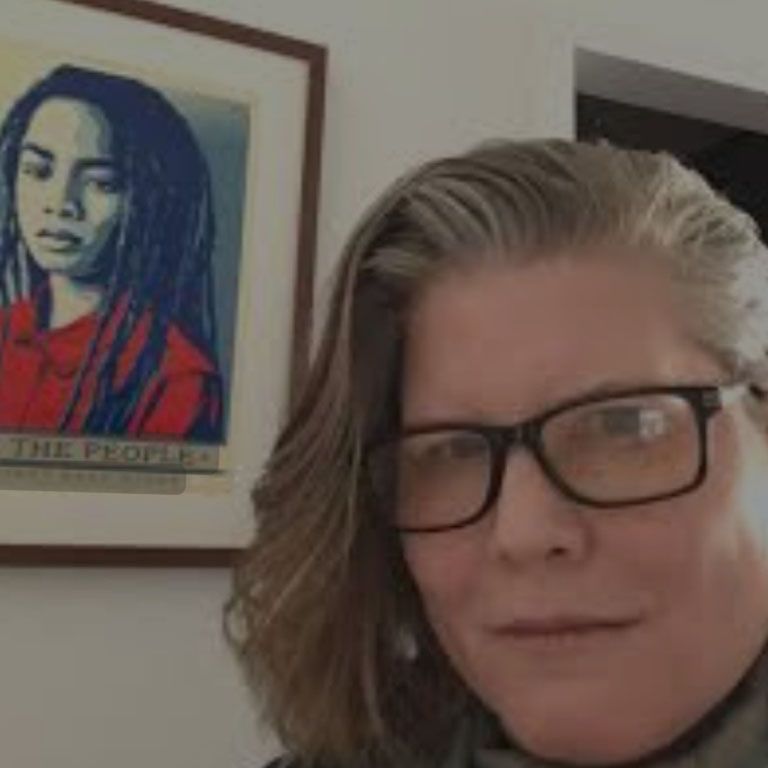Profile
Being part of the Deaf Artists Residency Program at The Anderson Center, Katherine De Lorenzo, is a writer of fiction. She is a writer and lecturer, currently working in Gender, LGBTQ, and Disability studies. Special areas: creative non-fiction, life writing, and literary fiction.
Her creative endeavors have taken a back seat since she has moved from being a professional writer to an academic. For many years now, she has taught gender, sexuality, disability/deaf studies at Hunter College, CUNY, in New York City. She very much enjoys teaching, but has recently returned to creative writing. Her profession has given her a rich influence, as she finds herself incorporating ideas and archival information from research in fictional work. Recently, she had an opportunity to have friends who work in publishing review some of her work, and they have encouraged her to continue and to consider submitting work for publication. Indeed, part of this encouragement included applying for a residency at Anderson, and she's optimistic that this program will be an ideal space for completing current projects.
One of three projects of focus while in residency:
'I have long been interested in combining a narrative that juxtaposes real and imagined experiences of the past that are connected —in residual, genealogical, or thematic ways —to present-day protagonists. One of my special areas of research are postmodern narratives that blend autography, documentary, witness testimony and historical elements. With the latter area as a foundation, the first of these two works is inspired by the lives of Laura Redden Searing and Marie Leneru, Deaf women who came to some prominence in the mid- and late-nineteenth century. Searing was primarily an American journalist and later a poet; Leneru was a French playwright. In their work and journals one can see the struggle to articulate a clear Deaf/deaf identity in the face of increasing oralism and professional pressures. Rather than work in biographical form, my project re-imagines their experiences, and contrast theirs with a fictional alter ego that is influenced by my own early adulthood."


